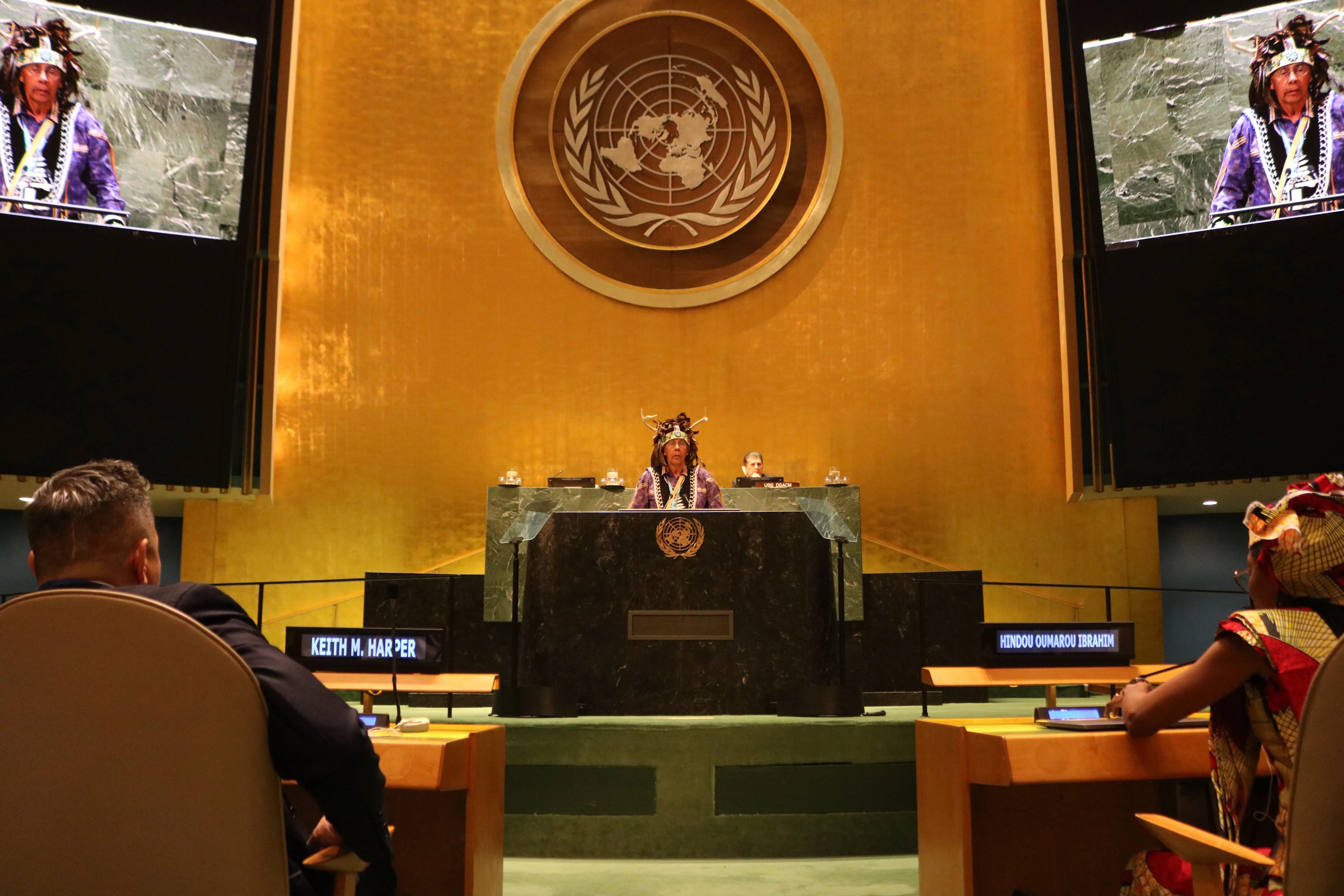
- Details
- By Darren Thompson
NEW YORK — Indigenous scholars presented a report on Tuesday on Indigenous determinants of health at the United Nations Permanent Forum on Indigenous Issues (UNPFII) 22nd session.
The study was delegated during UNPFII 21st session and aims to create positive health and wellness outcomes for Indigenous communities worldwide. The study also responds to the U.N.’s adopted 2030 Agenda for Sustainable Development to eliminate poverty and improve health and economic development for all populations globally.
The 20-page report outlines how social determinants — genetics, behavior, environment and culture — influence the health outcomes of the world’s Indigenous populations. The authors noted that while Indigenous populations vary around the globe, they share critical commonalities: an approach to health as an “equilibrium of spirituality, traditional medicine, biodiversity and the interconnectedness of all that exists” and oppression of culture via colonization.
“The Indigenous determinants of health are varied and cannot possibly capture everybody’s need and truth in one document,” Stacy Bohlen, (Sault Ste. Marie Ojibwe) CEO of the National Indian Health Board (NIHB) said at Tuesday’s announcement. “But the one commonality we share as Indigenous peoples is colonization, and the consequences of colonization internationally have led us to common grounds of cultural erasure, intergenerational trauma, and loss of language and culture, all supported by policies designed to specifically do those things.”
Dr. Donald Warne, Co-Director for the Center for Indigenous Health at John Hopkins University and a contributor to the report, told Native News Online that the report not only highlights determinants of health that contribute to disparities but determinants that support — or “protect” — positive health outcomes, such as connectedness to language, culture, and ceremony.
“Social determinants of health are typically linked to bad health outcomes,” Warne told Native News Online. “What we want to emphasize is that for Indigenous determinants of health, is that we have some very unique strengths.”
The report pinpoints 33 Indigenous determinants and protectants of health, divided into three categories: (a) Intergenerational holistic healing; (b) Health of Mother Earth; (c) Decolonizing and re-Indigenizing culture.
Determinants include institutionalized Indigenous-specific racism, ongoing trauma exposure, erosion of traditional lifeways and more. Protectors of health include acknowledgment of sovereignty and Indigenous rights and belief systems, access to traditional medicine, and land and sacred place.
“The protective factors of Indigenous health and that needs to be promoted,” Warne said.
Scholars hope that more resources will be put toward the research to establish guiding principles of how to improve the overall health and wellness of the world’s Indigenous peoples.
“This is not a document that’s produced with hopeful aspirations, but to actually make commitments and to measure outcomes based on the work related to this,” said Warne. “We’re hoping that it leads to long-term commitment internationally so that it leads to positive Indigenous outcomes.”
At Tuesday’s discussion, the Global Indigenous Youth Caucus —comprised of Indigenous youth from all seven regions within the U.N. — supported the report.
“We strongly support and stand by the report,” Makanalani Gomes, a representative of the Global Indigenous Youth Caucus, said. “We know that inclusion, cultivation, and nurturing of Indigenous youth are social determinants of youth. When we take care and honor the rights of Indigenous youth and Indigenous peoples, we in turn, take care of Earth, our Mother.”
The full report is available here.
More Stories Like This
New Mexico Will Investigate Forced Sterilization of Native American WomenUSDA Expands Aid for Lost Farming Revenue Due to 2025 Policies
Two Feathers Native American Family Services Wins 2026 Irvine Leadership Award
Bill Would Give Federal Marshals Authority to Help Tribes Find Missing Children
Indian Health Service to Phase Out Mercury-Containing Dental Amalgam by 2027
